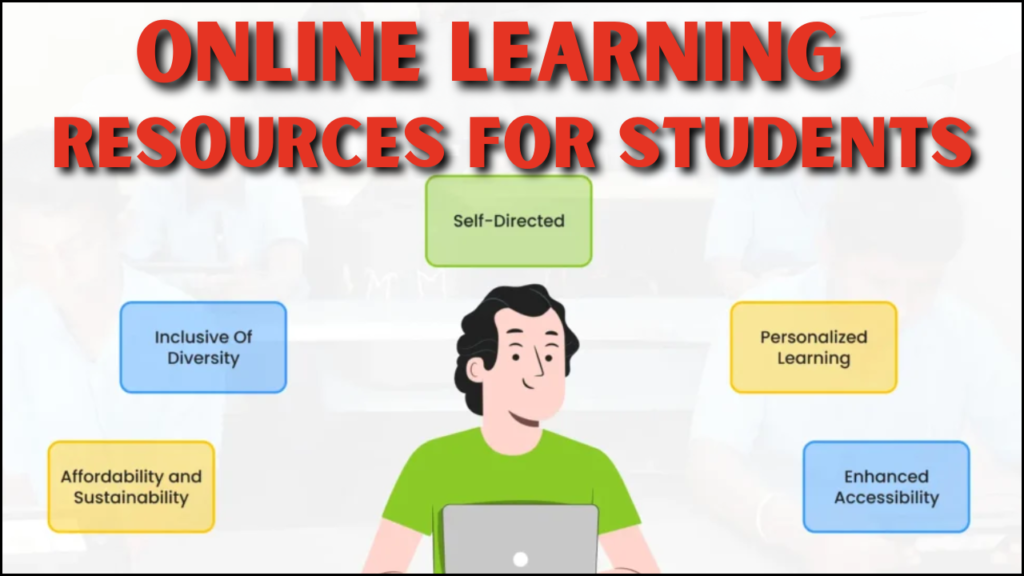
The rise of online learning has transformed education, offering flexible and engaging tools for students and teachers alike. Whether due to school closures, remote learning, or supplemental study, digital platforms provide diverse resources tailored to various subjects. This edition explores some of the best online learning platforms across different academic areas, emphasizing their benefits and unique features.
Online Learning Resources by Subject
1. Mathematics
For mastering math concepts, platforms like Prodigy Math offer gamified learning experiences that keep students engaged. Khan Academy provides comprehensive lessons for all grade levels, while IXL Math delivers personalized practice with real-time feedback. Younger students can explore basic math concepts through interactive apps like Moose Math and Mathletics.
2. Reading and Language Arts
Reading and comprehension are made enjoyable with tools like Epic!, an online library featuring thousands of books for children of all ages. ReadTheory helps improve reading skills through adaptive texts and quizzes, while Newsela provides current events articles tailored to different reading levels. For younger learners, Starfall offers phonics-based activities that build early reading skills.
3. Grammar and Writing
To enhance grammar and writing skills, platforms like NoRedInk provide personalized exercises based on student interests. Grammarly assists with grammar, punctuation, and writing style, making it perfect for older students. Younger students can practice sentence structure and parts of speech using Grammaropolis and Quill.org.
4. Science
Interactive science lessons come to life with platforms like Mystery Science, which offers hands-on experiments and engaging video lessons. NASA’s STEM Engagement website introduces students to space exploration, while Exploratorium provides virtual science exhibits. For biology enthusiasts, BioMan Biology offers interactive games and quizzes.
5. History and Social Studies
Understanding history is more engaging with resources like CrashCourse History, which presents educational videos with a fun and fast-paced approach. PBS LearningMedia offers social studies content aligned with school curricula, while iCivics teaches government and civics through interactive games. For global perspectives, World101 by the Council on Foreign Relations provides insights into international relations.
6. Technology and Coding
Coding skills are essential in today’s digital world. Platforms like Code.org introduce coding through fun challenges and tutorials. Scratch, developed by MIT, allows students to create interactive stories and games using block-based coding. For more advanced learners, Codecademy offers courses in programming languages like Python, JavaScript, and HTML.
7. Physical Education
Staying active at home is easy with online PE resources like GoNoodle, which features movement and mindfulness videos for children. Cosmic Kids Yoga introduces yoga through storytelling, while PE with Joe by Joe Wicks offers home workout routines for all ages. Sworkit Kids provides short fitness sessions designed to keep children moving and healthy.
8. Music and Arts
Creativity flourishes with platforms like Chrome Music Lab, which lets students explore music through interactive experiments. MuseScore enables budding musicians to compose and share their own music. For visual arts, Art for Kids Hub offers step-by-step drawing tutorials, while The Art Assignment explores art history and contemporary art.
9. Life Skills
Building essential life skills is crucial for personal development. Common Sense Education teaches digital citizenship and internet safety. Young Investors Society introduces financial literacy, while Skillshare offers courses in entrepreneurship, productivity, and more. For younger learners, Nomster Chef teaches cooking skills through kid-friendly recipes.
FAQs
Q1: Are online learning resources suitable for all age groups?
Ans: Yes, online platforms offer content tailored to different age groups, from preschoolers to high school students, ensuring age-appropriate and engaging learning experiences.
Q2: Can online learning replace traditional classroom education?
Ans: While online learning is a valuable supplement, it is most effective when combined with traditional classroom education, providing flexibility and additional resources.
Q3: How can parents support their children’s online learning?
Ans: Parents can create a structured learning environment, set regular study schedules, and monitor their children’s progress to ensure they stay motivated and focused.
Conclusion
The evolution of online learning has opened new doors for students, enabling them to explore subjects at their own pace while developing essential skills. By leveraging these diverse platforms, both students and teachers can create engaging, personalized learning experiences that support academic growth and lifelong learning.